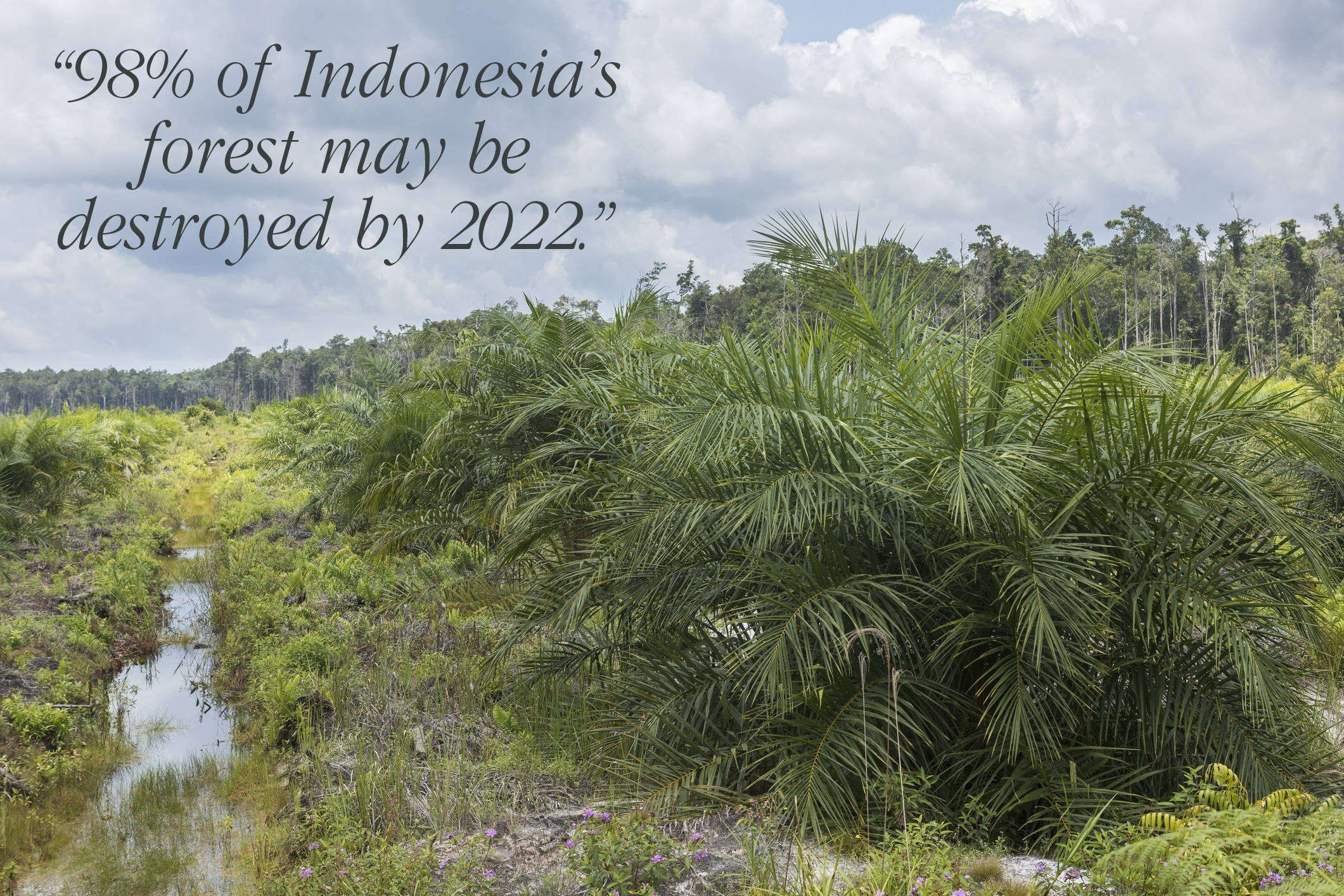Palm Oil - Can it Really be Sustainable?
Posted by Amy Stirling on 11th Nov 2019
Palm oil is an ingredient that is estimated to be used in over half of packaged supermarket products - including cosmetics. Nearly 90% of it is grown in the rainforests of Indonesia and Malaysia – home to some of the world’s most vulnerable species of animal.
Unsustainable Palm Oil
The overwhelming and ever-growing demand for palm oil is now one of the leading causes of rainforest destruction around the globe.
It is responsible for the destruction of our rainforests and endangerment of animals including Orangutans, Sumatran Rhinos and Sumatran Tigers.

- The rainforests are being cleared at the rate of 300 football fields per hour to make way for palm oil plantations.
- In the last 20 years, over 3.5 million hectares of Indonesian and Malaysian forest have been destroyed to make way for palm oil.
- According to the UN’s Environment Program (UNEP), “98% of Indonesia’s forest may be destroyed by 2022, the lowland forest much sooner.” This is an area which contains 10% of the world’s known plants, 12% of mammals and 17% of all known bird species.
- We are losing over 6,000 orangutans a year. And there are now only 400 Sumatran tigers and less than 70 Sumatran rhinos left in the wild.
Avoiding Palm Oil
It’s true that palm oil is difficult to avoid all together. Many companies disguise palm oil in their ingredients, most commonly as ‘vegetable oil’. You can look for products that contain clearly labelled oils, such as ‘100% sunflower oil’, and avoid any ingredients that include the word 'palm'. If in doubt, you can seek reassurance from producers, or do some research online.
It is said that palm oil can be produced sustainably, however Richard George of Greenpeace is quoted as saying: “When supermarkets and big brands claim they source 100% sustainable palm oil it’s ‘meaningless’.”
The Vegan Society doesn't stipulate that palm oil should be sustainably produced. Therefore when shopping for vegan skincare, it is important to look for an organic symbol as well as a vegan one.
Organic Palm Oil is Sustainable
In a recent statement, Sir David Attenborough commented:
"Palm oil is an efficient crop that supports local economies, but consumers should ensure products are genuinely sustainable".
But it seems that only way to tell if a product containing palm oil is genuinely sustainably produced is to look for an organic certification symbol, such as the Soil Association or COSMOS.
In a recent study, the Research Institute of Organic Agriculture (FiBL) compared major organic palm oil producers with conventional palm oil producers, and analysed their ecological and social aspects. Organic companies scored high in all areas: land use, quality, environmental impact, and social impact.
Botanicals Sustainability Promise
Wendy Stirling, Botanicals founder, says:
“Botanicals creates natural, safe products, which are developed using strict performance and ethical standards, but also ecological products derived solely from sustainable, natural resources, free from artificial colours, fragrances and petrochemicals, including parabens.”
The entire Botanicals skincare range is certified organic by The Soil Association, vegan-friendly, not tested on animals and cruelty-free. It is palm oil free, and only contains derivatives from sustainable, COSMOS approved sources.
As well as a Soil Association organic certification, every Botanicals product carries the ‘Not Tested On Animals’ Bunny logo and ‘Suitable For Vegans’ V logo - to confirm our cruelty-free & vegan-friendly credentials.
Botanicals is also proud to be endorsed by the Naturewatch Foundation and listed in their Compassionate Shopping Guide. This organisation has one of the strictest endorsement criteria for cruelty-free products in the world.

